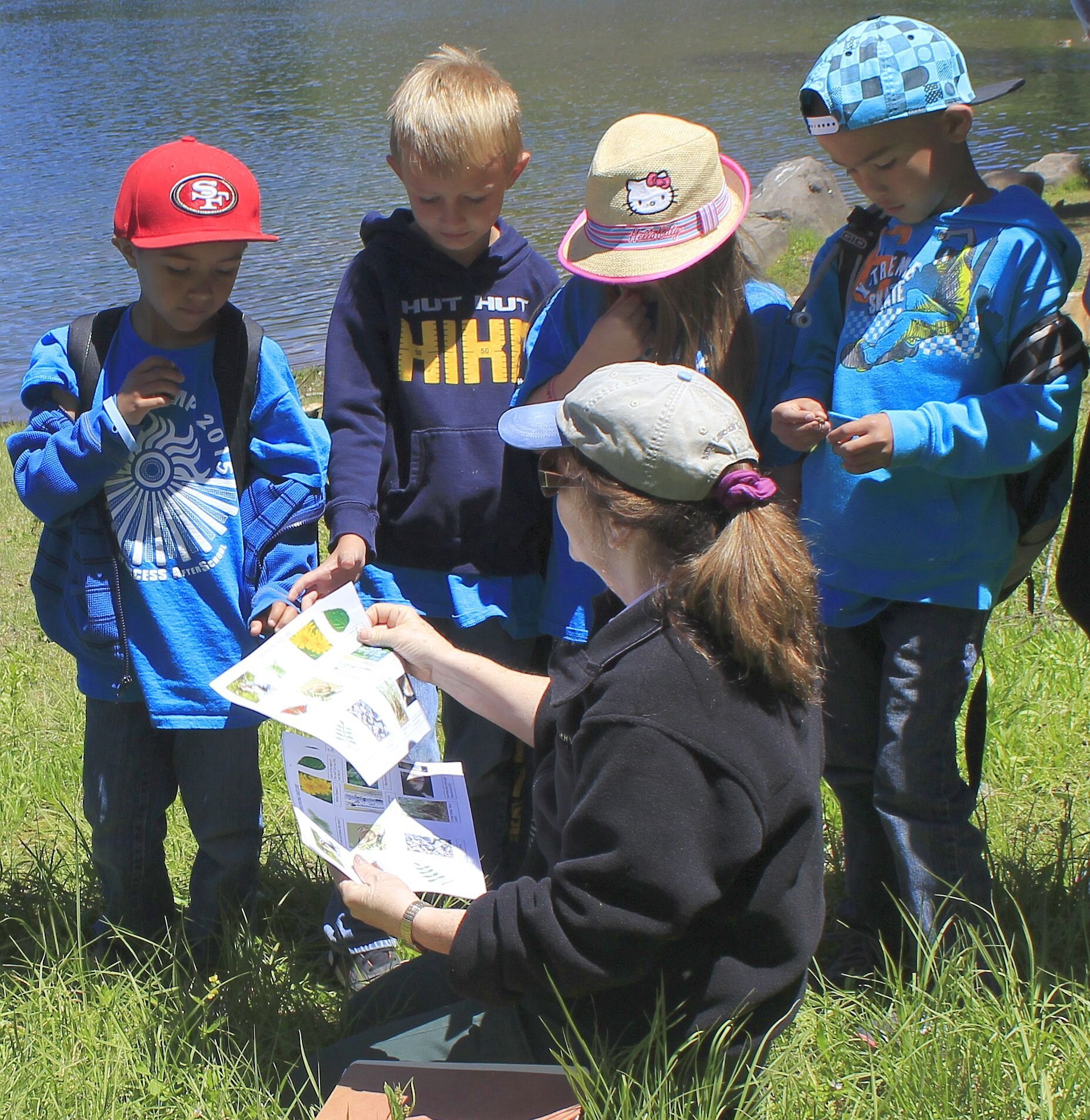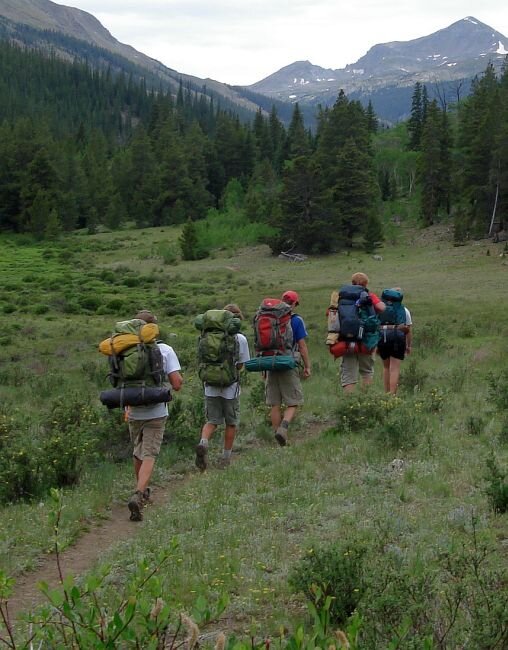Children + The Outdoors
Photos courtesy of Friends of Youth and Nature
At 8 years old I was slogging my way up the trail behind my parents, tired and grumpy. “I hate hiking,” I thought. “Why would anyone want to walk uphill for hours for no good reason? I could be watching TV right now.” Finally we reached the top. Out came the food we’d packed, and as we sat on a peaceful summit admiring the view and enjoying our hard-earned lunch, I realized how much better it all tasted because of the work we’d just put in. Maybe this “hiking” thing wasn’t so bad after all!
Many Colorado residents enjoy hiking, mountain biking, skiing and other activities that get them outside and breathing hard in the fresh air. It’s a way to stay fit, and even more than that, it’s an important part of maintaining happiness and mental health. But what impact does an early introduction to the outdoors have on who a child will become as an adult? How are they affected physically, mentally emotionally — and even morally? As it turns out, we can directly connect childhood exposure to outdoor activities with long-term outcomes.
Physical Fitness
It’s no secret that children are frequently neglecting more physical, outdoor forms of play in favor of the digital world — reducing kids’ screen time is often a major struggle for parents in the modern age. Computers, mobile devices and video games are passive forms of entertainment, and they don’t call for physical coordination, strength, endurance or any of the other attributes necessary for a healthy body. Outdoor play, on the other hand, promotes all of these things and is a natural method of encouraging physical activity in young people.
A 2015 meta-analysis published in the International Journal of Environmental Research and Public Health regarding the effects of time spent outdoors on children found that “outdoor time is positively related to physical activity and negatively related to sedentary behavior in children aged 3-12 years.” The more outdoor time children have, the more physical activity they take part in and, conversely, the less sedentary behavior they display.
Emotional Well-Being
Many people spend time in the outdoors because it brings them a sense of happiness and well-being. The natural environment is certainly more conducive to good mental health than the busyness and overwhelming stimuli of the city. If adults who have grown accustomed to the ways of the modern world still need to get away to nature every now and then to stay happy, surely children must benefit from these quieter natural spaces as well.
Perhaps unsurprisingly, a 2018 study in Preventive Medicine showed that the more time children spend in nature and the greater sense of connection they personally feel with nature, the less likely they are to experience psychosomatic symptoms such as irritability, anxiety, difficulty sleeping, headache, stomach ache, backache, and other physical afflictions. The benefits start with as little as 30 minutes of outdoor activity per week.
Stewardship
Physical activity, cognitive development, emotional well-being — these things are relatively easy to quantify in research. But what about something like an individual’s moral drive to preserve our natural areas, or their innate desire to be good stewards of the land? Can we quantify these outcomes?
Though it’s more difficult to show a correlation between time spent in the outdoors during childhood and an individual’s likelihood to become a good environmental steward, it has been shown that the amount of time spent in the outdoors has a direct correlation with a child’s feelings of connection with nature. According to 2011 research at the University of Massachusetts Amhurst, this sense of connection with the natural world then has a direct influence on behaviors related to environmental stewardship in children such as “conserving water, turning out lights, recycling, talking about the environment, and picking up litter.” The more time we can get future generations to spend in the outdoors, the greater sense of connection they’ll feel with nature, and the more likely they will be to work at environmental stewardship and preservation.
So the next time you take your kids outside, know that you’re not only directly contributing to their physical and mental well-being — you’re also helping to raise a generation that will value our natural environment and ensure the preservation of outdoor spaces for years to come.
Friends of Youth and Nature (FOYAN) is a non-profit organization that promotes opportunities for youth and families to go outside, experience outdoor activities and explore nature. For outdoor safety tips, trail game ideas, hiking trails, and other ways to get young people involved in the outdoors, visit FOYAN at friendsofyouthandnature.org.




